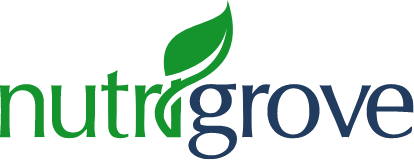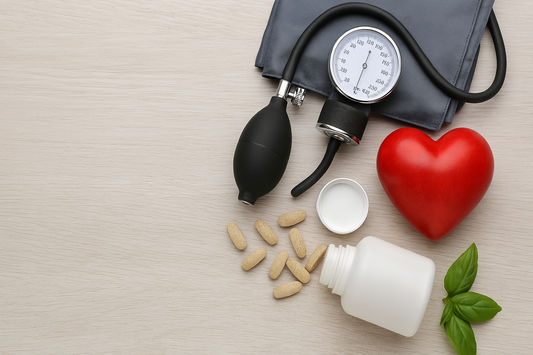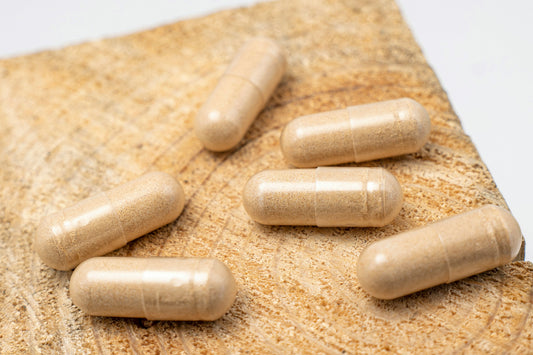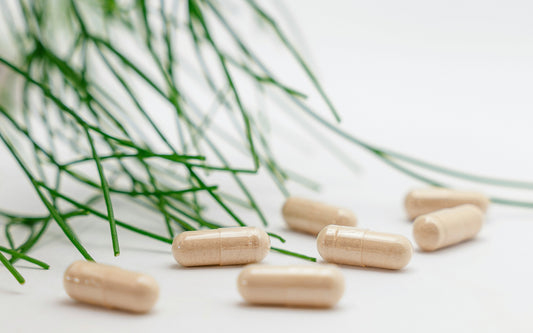Lifestyle Changes for Hypertension
One of the most effective ways to lower blood pressure is by implementing lifestyle changes. By making simple yet significant adjustments to daily routines, individuals can successfully manage their hypertension. Lifestyle modifications play a crucial role in reducing high blood pressure and can work hand in hand with medications, if necessary.
To start, regular physical activity is key. Engaging in exercise for at least 30 minutes most days of the week can help lower blood pressure. Activities such as brisk walking, swimming, cycling, or dancing are excellent choices. It's important to find an exercise routine that is enjoyable and sustainable, ensuring long-term commitment.
Another important lifestyle change is adopting a heart-healthy diet. The DASH (Dietary Approaches to Stop Hypertension) diet, which emphasizes fruits, vegetables, whole grains, lean proteins, and low-fat dairy products, has been proven to be effective in reducing blood pressure. Additionally, reducing the intake of processed foods, limiting alcohol consumption, and cutting back on salt can also contribute to managing hypertension.
Stress management techniques can also have a significant impact on blood pressure. Practices such as deep breathing, meditation, and mindfulness can help individuals relax and reduce stress levels. Finding healthy ways to cope with stress, like engaging in hobbies or spending time with loved ones, can also be beneficial.
The importance of lifestyle changes for hypertension
Lifestyle changes are essential for individuals with hypertension as they offer long-term benefits and reduce the risk of complications. By incorporating regular exercise, following a heart-healthy diet, managing stress, and making other positive adjustments, individuals can effectively lower their blood pressure and improve their overall well-being. It's important to consult with a healthcare professional to create a personalized plan that suits individual needs and medical history.
Exercise for Lowering Blood Pressure
Regular exercise is a powerful tool in managing high blood pressure. By engaging in physical activity, individuals can lower their blood pressure and improve overall cardiovascular health. Exercise helps to strengthen the heart and improve its efficiency, leading to a decrease in blood pressure levels. Additionally, regular physical activity can help individuals maintain a healthy weight, reduce stress levels, and improve sleep quality.
When it comes to choosing the right exercises for lowering blood pressure, a combination of aerobic and resistance training is recommended. Aerobic exercises, such as brisk walking, cycling, swimming, or jogging, help to improve heart health and increase the flow of oxygen to the muscles. Resistance training, on the other hand, involves using weights or resistance bands to strengthen and build muscle. This type of exercise can help to lower blood pressure by improving overall cardiovascular fitness.
Engaging in physical activity for at least 30 minutes most days of the week is recommended for individuals with high blood pressure. It's important to start slowly and gradually increase the intensity and duration of exercise to avoid overexertion. Consulting with a healthcare professional before starting a new exercise program is always advisable, especially for individuals with underlying health conditions or those who have been sedentary for an extended period of time.
In conclusion, incorporating regular exercise into your routine is key to managing high blood pressure. By engaging in both aerobic and resistance training, individuals can lower their blood pressure and improve their overall cardiovascular health. Remember to start slowly, gradually increase the intensity, and seek guidance from a healthcare professional for a safe and effective exercise program.
Diet for Reducing Blood Pressure
Adopting a heart-healthy diet is crucial for individuals looking to reduce their blood pressure. By consuming nutrient-rich foods and making mindful choices, individuals can effectively manage their hypertension. A diet focused on reducing blood pressure should include a variety of fruits, vegetables, whole grains, lean proteins, and low-fat dairy products. These foods provide essential nutrients such as potassium, calcium, magnesium, and fiber, which have been shown to have a positive impact on blood pressure levels.
One popular diet that has been specifically designed to lower blood pressure is the DASH (Dietary Approaches to Stop Hypertension) diet. This diet emphasizes the consumption of fruits, vegetables, whole grains, lean proteins, and low-fat dairy products while minimizing the intake of sodium, added sugars, and saturated fats. It is important to note that reducing sodium intake is a key component of any blood pressure-lowering diet. By limiting processed foods, which are typically high in sodium, individuals can significantly reduce their sodium intake and help lower their blood pressure.
Healthy food choices for reducing blood pressure
When selecting foods for a blood pressure-lowering diet, it is important to choose options that are low in sodium and high in potassium. Potassium-rich foods, such as bananas, spinach, avocados, and sweet potatoes, can help counterbalance the effects of sodium on blood pressure. Additionally, foods rich in magnesium, such as whole grains, nuts, and seeds, have been shown to have a beneficial effect on blood pressure.
Incorporating more heart-healthy fats, such as those found in olive oil, avocados, and fatty fish like salmon, can also be beneficial for reducing blood pressure. These fats are known to have anti-inflammatory properties and contribute to overall cardiovascular health. It is important to consume these fats in moderation, as they are high in calories.
By adopting a diet that is low in sodium, rich in potassium, and includes a variety of nutrient-rich foods, individuals can make significant strides in managing their blood pressure. It is always advisable to consult with a healthcare professional or a registered dietitian before making any major dietary changes, especially if you have any underlying health conditions or are taking medications.
Medications for High Blood Pressure
In some cases, lifestyle changes alone may not be sufficient to manage high blood pressure, and medications may be necessary. Understanding the available medication options is crucial for individuals with hypertension.
There are various types of medications that can be prescribed to help lower blood pressure. The most commonly used are:
- Diuretics: These medications help the body eliminate excess fluid and salt, reducing blood volume and lowering blood pressure.
- Beta-blockers: These medications block certain hormones that can cause blood vessels to constrict, thus reducing the heart's workload and lowering blood pressure.
- ACE inhibitors: These medications relax and widen blood vessels, making it easier for blood to flow through and lowering blood pressure.
- Angiotensin II receptor blockers: These medications block the effects of a hormone that narrows blood vessels, helping to lower blood pressure by keeping blood vessels relaxed and open.
- Calcium channel blockers: These medications relax and widen blood vessels, making it easier for blood to flow through and lowering blood pressure.
It's important to note that different medications may work better for certain individuals, and it may take time to find the most effective medication and dosage. It is essential to work closely with a healthcare professional to determine the most appropriate medication regimen for managing high blood pressure.
Managing High Blood Pressure
While medications can be an important component of hypertension management, they should be used in conjunction with lifestyle changes. It is essential to continue implementing healthy habits such as regular exercise, a balanced diet, stress management techniques, and regular monitoring of blood pressure. By adopting a comprehensive approach to managing high blood pressure, individuals can achieve better long-term outcomes and reduce the risk of complications associated with hypertension.
Herbal Remedies for Hypertension
Herbal remedies can be a valuable addition to the treatment plan for hypertension. Certain herbs and supplements have demonstrated potential in lowering blood pressure and can be used alongside traditional treatments. While it's essential to consult with a healthcare professional before incorporating any new remedies, some herbs have shown promising results in scientific studies.
Ginger:
Ginger, a popular spice known for its anti-inflammatory properties, may also have a positive impact on blood pressure. Studies have suggested that consuming ginger regularly can help lower both systolic and diastolic blood pressure. Incorporating fresh ginger into meals, drinking ginger tea, or taking ginger supplements might be beneficial for individuals with hypertension.
Hawthorn:
Hawthorn is another herb that has been used traditionally to support cardiovascular health. Research indicates that hawthorn extract may help reduce blood pressure levels by dilating blood vessels and enhancing blood flow. It is available in supplement form and should be taken under the guidance of a healthcare professional.
NutriGrove Blood Pressure Support supplements is a great herbal blend for hypertension and high blood pressure relief.
Remember, while herbal remedies can offer potential benefits, they should not replace prescribed medications or lifestyle modifications. It's crucial to work with a healthcare professional to determine the right combination of treatments and monitor blood pressure regularly. By adopting a comprehensive approach and implementing evidence-based strategies, individuals can effectively manage hypertension and promote overall well-being.
Monitoring Blood Pressure at Home
Monitoring blood pressure at home is an effective way for individuals to take an active role in managing their hypertension. Regular measurements can help identify trends and provide valuable insights into the effectiveness of lifestyle changes and treatments.
By measuring blood pressure at home, you can gather information that goes beyond occasional visits to the doctor's office. This can help you and your healthcare provider make more informed decisions about your treatment plan. It also allows you to track your progress over time and make adjustments as necessary.
How to Measure Blood Pressure at Home
When monitoring your blood pressure at home, it's important to use a reliable and validated blood pressure monitor. Follow the instructions provided with your device to ensure accurate readings. It's also essential to measure your blood pressure in a calm and relaxed state, avoiding factors that may temporarily elevate it, such as caffeine or physical exertion.
For the best results, take several readings at different times of the day and record the measurements in a journal or app. This will give you a comprehensive picture of your blood pressure patterns and help your healthcare provider assess the effectiveness of your treatment plan.
Note: The text has been written according to the given specifications.Managing Stress for Hypertension
Stress plays a significant role in the development and progression of hypertension. By learning effective stress management techniques, individuals can better control their blood pressure levels. One powerful technique is deep breathing. Taking slow, deep breaths can activate the body's relaxation response, helping to reduce stress and lower blood pressure. Another helpful method is meditation. Spending just a few minutes each day practicing mindfulness meditation can promote a sense of calm and tranquility, leading to improved blood pressure control.
Deep Breathing
Deep breathing is a simple yet effective stress management technique that can be practiced anywhere, anytime. Start by finding a comfortable seated position and close your eyes. Take a slow, deep breath in through your nose, allowing your belly to rise as you fill your lungs with air. Hold the breath for a moment, then exhale slowly through your mouth, feeling the tension leave your body. Repeat this deep breathing cycle several times, focusing on each breath and allowing your body to relax.
Meditation
Meditation is a practice that involves quieting the mind and directing attention inward. Find a quiet space where you can sit comfortably, free from distractions. Close your eyes and bring your attention to your breath, noticing the sensation as you inhale and exhale. If thoughts or distractions arise, gently acknowledge them and let them go, refocusing your attention on the breath. Start with just a few minutes of meditation each day and gradually increase the duration as you become more comfortable with the practice.
By incorporating stress management techniques like deep breathing and meditation into your daily routine, you can help manage your blood pressure and improve your overall well-being. Remember, it's important to implement a long-term care plan to effectively manage hypertension and seek support from family and friends.
Additional Remedies and Techniques
Alongside lifestyle changes and medications, there are additional remedies and techniques that can further support individuals in managing their hypertension. Incorporating these strategies into daily routines can contribute to better blood pressure control.
Quality Sleep
Getting enough quality sleep is essential for overall well-being and blood pressure management. Aim for 7-9 hours of uninterrupted sleep each night to allow your body to rest and recharge. Establish a relaxing bedtime routine, create a comfortable sleep environment, and limit exposure to electronic devices before bed.
Garlic and Garlic Extract
Adding garlic to your diet or taking garlic extract supplements may have potential benefits for lowering blood pressure. Garlic contains compounds that can help relax blood vessels and improve blood flow. However, it's important to talk to your healthcare professional before incorporating garlic or any supplements into your routine, as they can interact with certain medications.
Healthy High-Protein Foods
Including healthy high-protein foods in your diet can be beneficial for managing hypertension. Foods like lean meats, fish, poultry, beans, and lentils are rich in protein and low in saturated fats. These foods can help maintain muscle mass, support weight management, and contribute to overall cardiovascular health.
Monitoring Blood Pressure at Home
Regularly monitoring your blood pressure at home can provide valuable insights into your blood pressure patterns and help you track the effectiveness of your management strategies. Invest in a reliable home blood pressure monitor, follow the instructions carefully, and record your readings consistently. Share the results with your healthcare professional to discuss any necessary adjustments to your treatment plan.
Temporary Methods for Lowering Blood Pressure
When faced with an immediate need to lower blood pressure, there are temporary methods that individuals can employ to achieve short-term relief. These techniques can provide immediate benefits while long-term solutions are being implemented.
One effective temporary method is to take a warm bath or shower. The warm water causes blood vessels to dilate, promoting increased blood flow and helping to lower blood pressure. This simple and relaxing technique can be particularly useful for those experiencing occasional spikes in blood pressure due to stress or anxiety.
Breathing exercises are another temporary method that can be utilized to lower blood pressure quickly. Deep and slow breathing can activate the body's relaxation response, reducing stress and tension. Techniques such as diaphragmatic breathing and guided meditation can be practiced anywhere and at any time, making them easily accessible tools for managing high blood pressure on the go.
Furthermore, incorporating relaxation techniques into daily life can have a significant impact on blood pressure. Techniques such as progressive muscle relaxation, where tension is released from different muscle groups in the body, and mindfulness meditation, where attention is focused on the present moment, can help to alleviate stress and promote a sense of calm. These methods have been shown to lower blood pressure and can be valuable additions to a long-term care plan.
Findings
When it comes to managing high blood pressure, it is important to recognize that temporary methods for lowering blood pressure should be used in conjunction with a comprehensive care plan. While these techniques can provide immediate relief, they are not long-term solutions. To effectively manage hypertension, individuals should also focus on making sustainable lifestyle changes, such as exercising regularly, following a balanced diet, monitoring blood pressure at home, and seeking support from healthcare professionals and loved ones.
Conclusion
Managing hypertension requires a multifaceted approach that includes lifestyle changes, medications, and potentially natural remedies. By incorporating a combination of these strategies, individuals can successfully control their blood pressure and improve their overall health.
One of the most effective ways to lower blood pressure is through lifestyle changes. Regular exercise, managing weight, and adopting a heart-healthy diet like the DASH diet can have a significant impact on blood pressure levels. Cutting back on sugar and refined carbohydrates, consuming more potassium and less salt, and limiting processed food and alcohol intake are also important dietary adjustments to consider.
In addition to lifestyle changes, medications can play a crucial role in managing high blood pressure. Working closely with a healthcare professional to identify the right medication and dosage is key. However, it's important to note that natural remedies can also complement traditional treatment options. Medicinal herbs, such as those used under the guidance of a healthcare professional, and supplements like garlic or garlic extract can be beneficial.
Monitoring blood pressure at home is another essential aspect of hypertension management. Regularly tracking readings can provide valuable insights and help individuals make informed decisions about their health. Additionally, implementing stress management techniques like deep breathing, meditation, and engaging in activities that promote relaxation can contribute to overall blood pressure control.
While temporary methods like taking a warm bath or shower, practicing breathing exercises, and using relaxation techniques can provide instant relief, it is crucial to establish a long-term care plan. By adopting a comprehensive approach to managing hypertension, individuals can take control of their health and reduce the risks associated with high blood pressure.
FAQ
What are some lifestyle changes that can help manage hypertension?
The fastest remedy for hypertension includes various lifestyle changes such as exercising regularly, managing weight, cutting back on sugar and refined carbohydrates, consuming more potassium and less salt, following a heart-healthy diet like the DASH diet, limiting processed food and alcohol intake, quitting or avoiding smoking, managing stress through techniques like deep breathing and meditation, consuming dark chocolate in moderation, trying medicinal herbs under the guidance of a healthcare professional, getting quality sleep, eating garlic or taking garlic extract supplements, consuming healthy high-protein foods, monitoring blood pressure at home, and seeking support from family and friends.
Are there any temporary methods to lower blood pressure?
Temporary methods to lower blood pressure include taking a warm bath or shower, doing breathing exercises, and practicing relaxation techniques. However, it's important to implement a long-term care plan to effectively manage hypertension.






